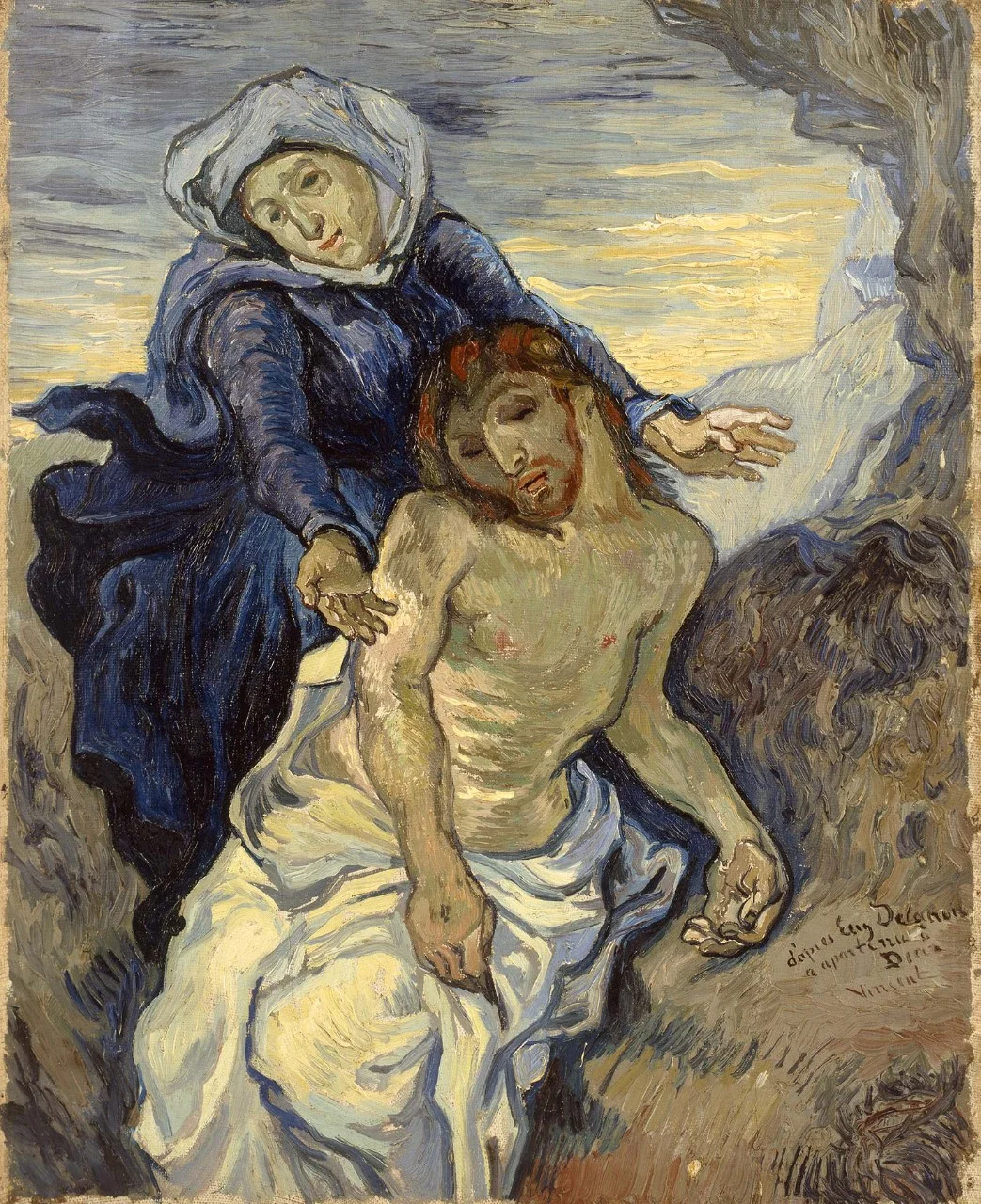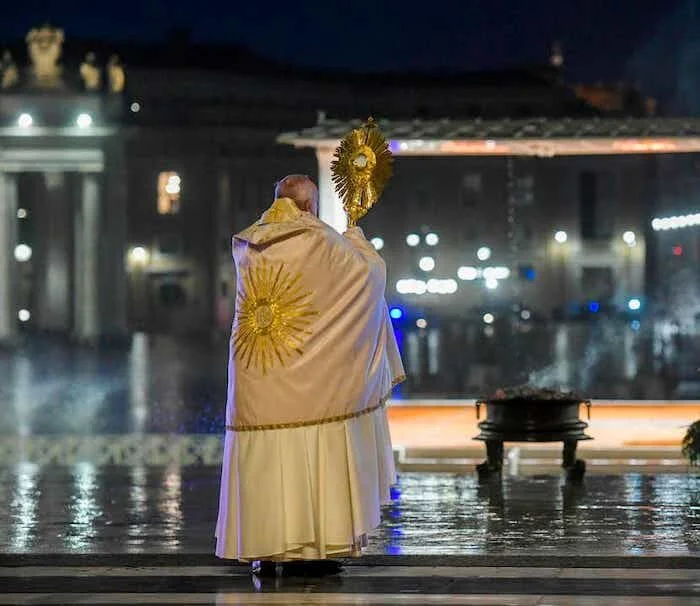Five paradoxes of spiritual direction
The second instalment in our series on spiritual direction is by the Canon John Twisleton. Fr John is a priest based in Haywards Heath who has served variously as parish priest, theological college principal and diocesan missioner. He writes on prayer and apologetics, blogs and broadcasts on Premier Radio. He writes regularly for New Daylight (BRF), and is author of Meet Jesus (BRF, 2011), Using the Jesus Prayer (BRF, 2014) and Experiencing Christ’s Love (BRF 2017).
I speak from the margins of the church. Those of us with a heart for spiritual direction are always on the edge of things. Isn’t that a good place to be? With the Holy Spirit? Where better to be than in a place less of power than of influence? The gospel spreads better from the weak to the strong than vice versa. You can overdo that sentiment though. Spiritual direction needs more recognition and use, so I rejoice in the priority given it by our new School of Theology as it seeks to equip the saints for the work of ministry, for building up the body of Christ (Eph 4:12).
Five paradoxes then, and we’ve had the first. If a paradox is about two truths that apparently contradict but are to be held together in experience, then my first paradox is:
1. Holiness is the church’s best influence and though the Holy Spirit is God above all this quality spreads best from the margins
Gustave Doré. The prophet Amos.
It’s been 50 years since I first sought spiritual direction and it was actually in St Mary Magdalen’s that I did so. I met Fr John Hooper and there was “something about him”. A gentle suggestion about the value of sacramental confession hit me forcefully. I went and alongside individual absolution began—and continued ever since—to welcome spiritual counsel every two months: Shrove Tuesday, Holy Week, Pentecost, Assumption, All Saints, and Christmas. As a Research Fellow in Chemistry at St John’s College, the parish church of St Mary Magdalen’s had been marginal to my life, but through encountering holiness there it took me deeper than my cerebral occupation, which is how I’ve have ended up a ‘Fr John’! Any network that equips the saints in holiness and provides a sense of spiritual direction will always remain on the edge of things. It involves a certain reserve, so that its paradoxical for me to try and speak of it as I’m doing. Such thinking about powerful margins is well stated though in writers like Henri Nouwen and Jean Vanier who testify to the spiritual power that spreads out from disability in the L’Arche communities.
2. We are stewards and beneficiaries of the Christian faith as handed down through the centuries whilst being nourished by a multiplicity of spiritual networks
We who are involved in spiritual direction are pygmies sitting on giant’s shoulders. Where would we be without Anthony, Julian of Norwich, Ignatius, Bunyan, Ramsey and so on? We hand on when appropriate from what’s seen as mainstream Christian believing. We walk—or endeavour to walk— on the well-trodden path of our spiritual fathers and mothers. When St Ignatius of Loyola gives guidance to spiritual directors he stresses they must have a sound grasp of orthodox doctrine so they may never be guilty of distracting a directee from mainstream belief and practice. Spiritual direction among Anglicans is more akin to soul friendshipthan instruction, but spiritualities that imagine God as a genie-in-a-lamp should alert us to that age old counsel of the need to conform ourselves to Christ and not Christ to ourselves. I am exhilarated to stand as I do in the great Christian tradition so that so much of what I have to offer people is handed down. At the same time my own spirituality is resourced and, yes, exhilarated at times, by a number of contemporary networks that are alive in the Holy Spirit. I think of the priestly Society of the Holy Cross, Cursillo, New Wine, and Walsingham, and involvement with monastic communities at Mirfield and Crawley Down. When we examine the influences that keep us in right and deep believing, we find this paradox of a linear, vertical, hierarchical element in tension with a lateral, multiple network element.
3. To build the body of Christ we need to speak of Christ but we more urgently need to find ways of living together as Christians that will make Jesus Christ intriguing and attractive to not-yet Christians
My years in Christian ministry have been split between diocesan and parochial responsibilities with involvement in resourcing mission and church renewal in London, Sussex, and Guyana, alongside service as parish priest in Doncaster, Coventry, and Horsted Keynes in Sussex. Increasingly the bottom line in mission thinking is less ‘how do you share the Gospel’ and more ‘how do we live as the church’, which brings me to the third paradox or tension we have to live in and through. The Holy Spirit directs our proclamation of Jesus, but as Paul says he is also, God’s love poured into our hearts(Romans 5:5) establishing us to live in that intriguing body we call the Church. How does it intrigue? I wouldn’t be writing this unless I’d been intrigued years back by the life and liturgy of a worshipping community. There was and still is awe— colour, beauty, mystery—at a church like St Mary Magdalen’s, but it was made accessible by thoughtful people who had “something about them”. An unselfconscious obedience to the faith and practice of Christianity through the ages expressed in openness to spiritual direction was part of what intrigued. As John O’Donohue wrote about evangelisation: In the end the most effective and trustable witness is the integrity of individual presence. [1]
4. Spiritual direction, if it is from the Holy Spirit, will encourage self-sacrifice alongside the right knowledge and love of self
The traditional retreat tag-line is: know yourself, love yourself, forget yourself.You can’t give what you don’t possess. Self-knowledge and self-love come before self-sacrifice although we all go through phases when we need to rediscover one of the three. In a reaction against ‘directing’ direction we’ve moved to a position where any spiritual guide must beware of being directive even though loving correction is a New Testament value. I remember a young couple coming to see me, who had fallen in love. Both were already married and one of their existing partners was awaiting the birth of their first child. As committed Christians they insisted their relationship was from the Holy Spirit as they sought my guidance. I had to point out that spiritual direction involves both the Holy Spirit and Scripture, of which the Ten Commandments are greatly significant. Adultery is hardly likely to be inspired by the Holy Spirit since God’s Spirit and God’s word are one. An extreme example, no doubt, but it took some courage to introduce a degree of objectivity into proceedings. There isobjectivity for Christians when it comes to matters spiritual. The danger we face is rather the same as those who have responsibility for spirituality in schools. Faced with diversity about truth and how spirituality relates to it they fall back on self-fulfilment as the key model. Ironically mainstream religions see self-sacrifice for truth’s sake as a major theme.
5. Some people seeking spiritual direction nowadays ‘want it and want it now’. Discernment is more concerned to get it right than to get it now and is a commitment to the long haul
How do you get it right? My image of ultimate rightness is the beatific vision St John refers to in a golden nugget of a verse: we shall see him as he is and we shall be like him(1 John 3:2b) As directors or directees we deal with the here and now but we do so taking the longest view, the perspective of eternity, which sometimes conflicts with enthusiasm. The enthusiastic Francis of Assisi prayed discernment and heard a voice, Francis repair my church.Off he went to rebuild his parish church. Later he discovered God meant it much more widely than bricks and mortar! Impatience is a root evil in any age. People can be so tied into an immediate want they resist the challenge to go deeper in discerning their need before God which, when filled, will speed them from glory to glory. If only they had patience to address beyond that urge: I want it and I want it now. As spiritual directors or soul friends we offer people a little help along the way towards the vision of God, an encouragement to take the long view, to seek the unhurried perspective of eternity and repent of all that subtracts from the joyful goodness of the God we love. Give me a vision of yourself more to your dimension and less to minewe encourage people to ask – and wait and see. Think magnificently about God.You can’t raise people’s expectancy of God and real engagement with him without first challenging them to abandon any idea of a quick fix. Getting Jesus Christ into our lives is more costly than a quick fix: it costs more but it’s worth more, to him, to us and to the world!
In summary, then: the church’s holiness is from above and yet impacts laterally from the margins; people’s faith is nourished both from what’s handed down with authority from the past and contemporary networks; self-sacrifice is needed to complement the right love of self; and we don’t engage well with people’s needs without encouraging perseverance. Living with these tensions helps the ministry of spiritual direction to be faithful to the invitation of the word of God to equip the saints for the work of ministry, for building up the body of Christ.
- O'Donohue, John. (1994). To awaken the divinity within: towards a new theory of evangelization. The Way, 34(4), 265-272.






